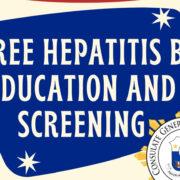You could always apply for a change of status when you get to the US. For example if you come to the United States on H-4 status, you could always apply for an H-1B yourself or a myriad of other types of status where you are no longer the derivative beneficiary, but the primary applicant.
QUESTION: Hello, my husband just got an H-1B to go to the United States. Do I have to remain here in my home country while he is in the United States on a work permit?
Answer. No. You would be considered a ‘derivative beneficiary’. This means that you would only have to prove the relationship that you have with your husband and then you would get a derivative visa. In this case, you would get an H-4. This would allow you to come to the United States.
Question: What about my children and my son who is married and my other daughter who is 32 years old?
Answer: All children who are under 21 and unmarried will be able to obtain derivative status as well. Unfortunately, the son who is married and the daughter who is over 21 years of age will not be able to get derivative status as well.
Question: Can I work on derivative status?
Answer: That will depend on the type of visa you have. For example, H-4 will not permit you to work. However, if your husband were to have received an E-2 for investing in a business or an L-1 for opening up a branch office, then you would be able to easily work with a derivative status.
Question: If I have a derivative status that does not permit me to work, what can I do?
Answer: You could always apply for a change of status when you get to the US. For example if you come to the United States on H-4 status, you could always apply for an H-1B yourself or a myriad of other types of status where you are no longer the derivative beneficiary, but the primary applicant.
Question: Will my children be able to go to school if they are here on a derivative status?
Answer: That also will depend on the type of derivative status. E-2 and L-2 will allow going to school without a problem (as long as not college). Otherwise, there has to be a change of status to F-1.
Question: If one of my children is now 20, but my husband got an H-1B for 3 years, will my child also get derivative status for 3 years?
Answer: No. The moment your child turns 21, his derivative status is over. Even if the I-94 states it is good for 3 years, by operation of law, it will terminate the day he is 21 years old. Therefore, it would be in your interest for him to file for a change of status a few months before, such as to F-1 to be a student.
Question: Are derivative beneficiaries also the spouse and unmarried children under 21 years old?
Answer: Actually, that is most of the time. However, there are certain visas which in actuality have a broader range of derivative beneficiaries, and therefore, make it a better choice if you qualify. For example, visas such as the U and T allow a broader range of derivative beneficiaries.
Question: What about the Green Card? Are there also derivative beneficiary’s?
Answer: Yes, in much the same manner. Except when the Green Card or Lawful Permanent Residency is involved, it will result in the Green Card being issued. Therefore, you want to make sure to apply in plenty of time as in some cases, it will take years for the visa number to become current. There might be some ways of getting a derivative Beneficiary if the child is over 21 years old if they fall under the Child Status Protection Act.
In any case, be sure you consult a knowledgable immigration attorney before the child has aged out and there is no way to get derivative status.
* * *
Brian D. Lerner is an Immigration and Naturalization Attorney. He is a Certified Specialist in Immigration and Nationality Law as Certified by the State Bar of California, Board of Legal Specialization. Mr. Lerner is married to a Filipina and has been helping Filipinos immigrate to the United States for nearly 20 years. His firm represents clients in Deportation/Removal proceedings, does Waivers, Appeals, Naturalization, Adjustments, Criminal Relief, Citizenship, Consulate Processing, Work Permits, Investment Visas and all other areas of Immigration and Naturalization Law. You can go online to http://www.californiaimmigration.us/ and get a free consultation or call us at (562) 495-0554 for an in-person office consultation.




